Sydney girl will sing for Cyprus in final of Eurovision song contest
Let’s all get behind Eurovision 2024’s youngest act: 17-year-old Sydney girl Silia Kapsis, who earned a spot in this weekend’s final flying the flag for Cyprus but still calls Australia home
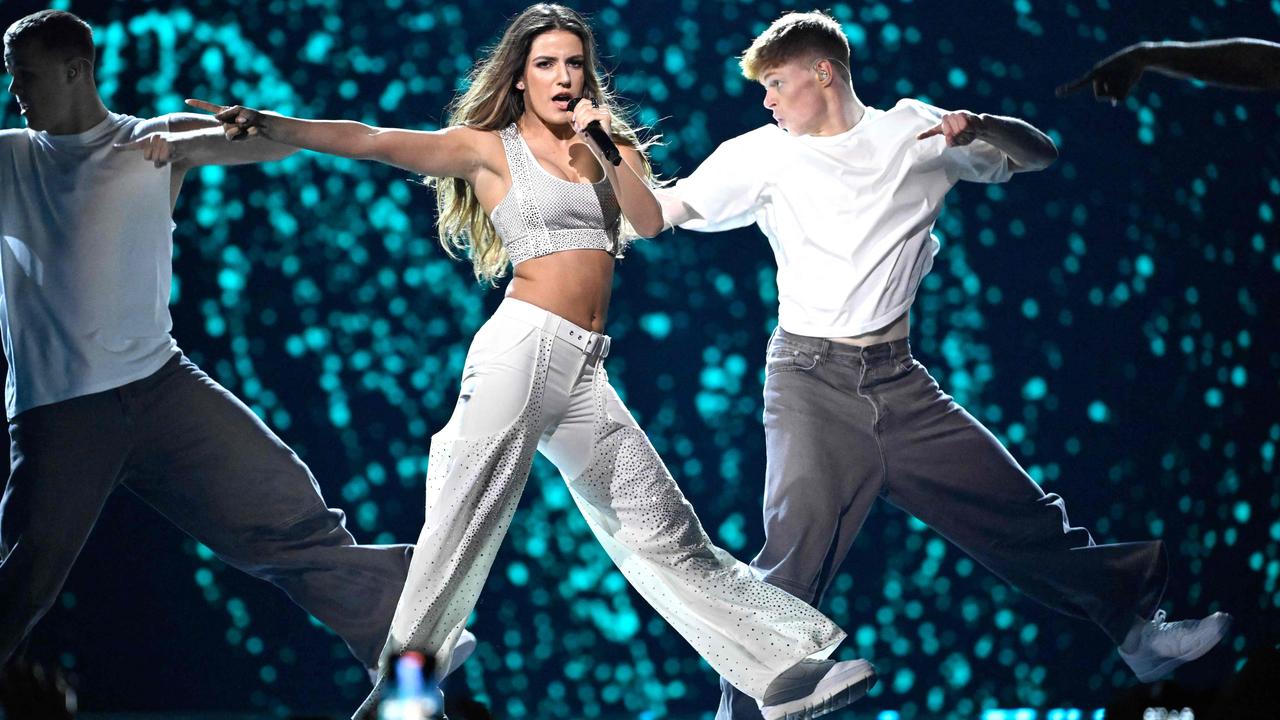
READING LEVEL: GREEN
Australia has a teen artist to support at the world’s biggest live music event, thanks to 17-year-old Sydneysider Silia Kapsis. The youngest contestant* at this year’s mega music contest Eurovision, Silia scored a spot in this weekend’s grand final after opening the show with an electrifying*, high energy song called Liar in a performance enhanced* by stunning stage design and lighting.
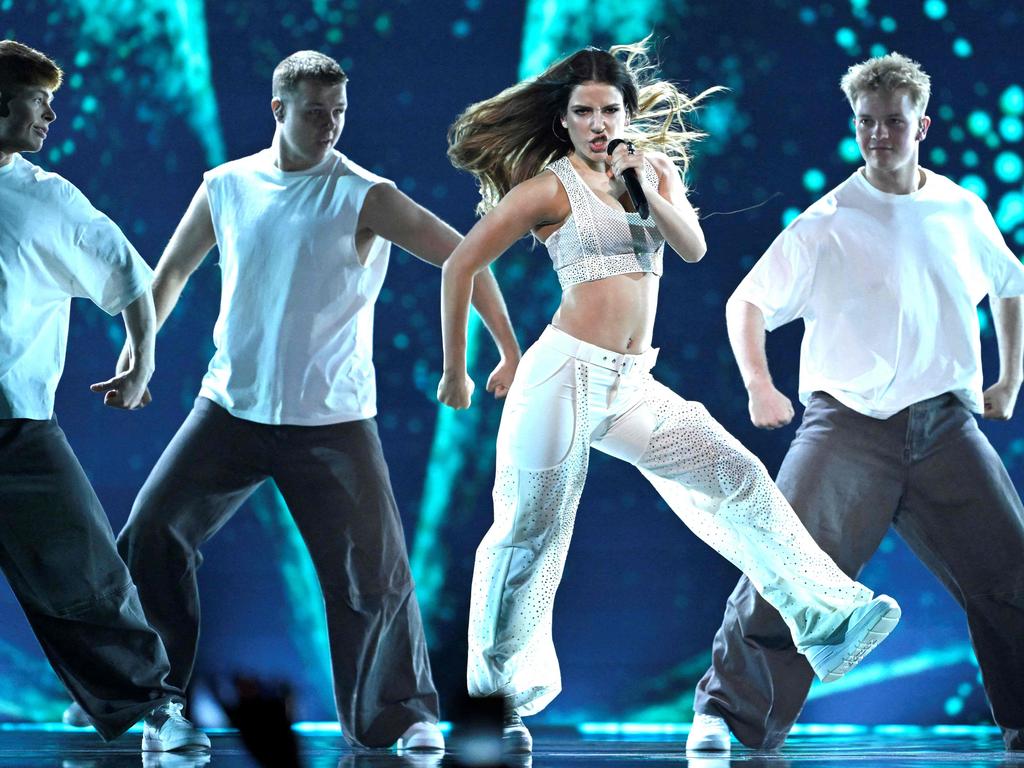
Silia’s Greek Cypriot heritage* made her eligible to compete for Cyprus but she draped herself in the flags of both Australia and Cyprus after making the cut. The teen bounced with excitement at the news and was one of several acts that hadn’t rated in poll predictions* but won big votes from fans.
“I’m so excited I literally* have no words,” she said.
“The audience helped so much … especially the cheering on the dance break … and for the ending …”
Silia said she hoped Australians would get behind her with their votes at the weekend’s big finale, when she will perform in the second half.
“I will be an Aussie Aussie Aussie, Oi Oi Oi until the day I die, I love you guys and I hope you support me,” Silia said.
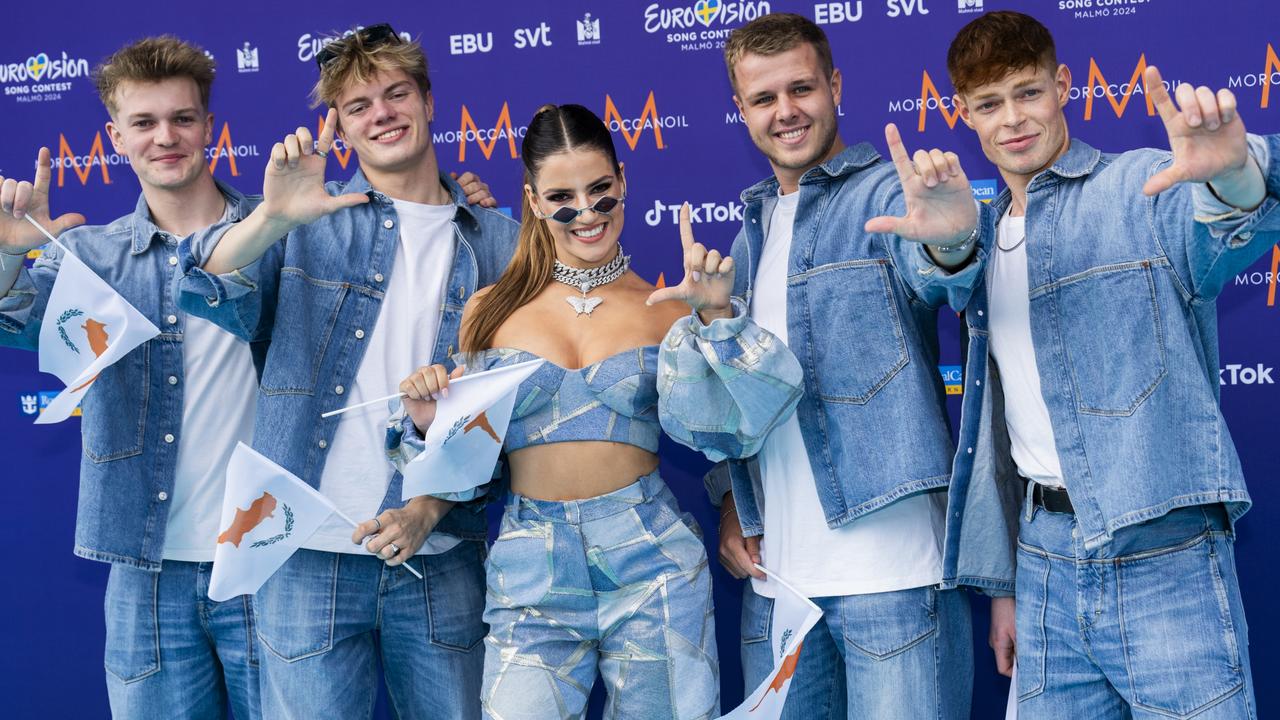
The teenager said she would celebrate her semi-final victory with a few Tim Tams before bed.
She also gave a shout out to the act that was officially representing Australia, Electric Fields, who brought Indigenous culture to Eurovision for the first time.
“(Electric Fields) were also amazing at Eurovision this year, they are so incredible and … I hope I make you guys proud as well,” Silia said.
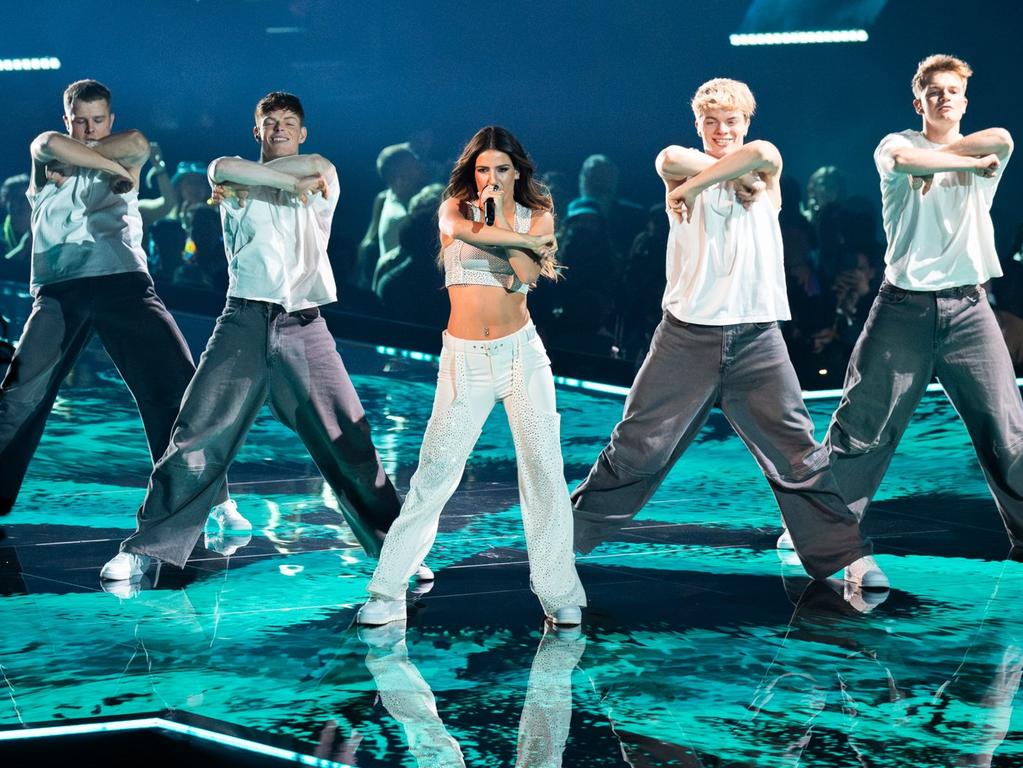
The South Australian Indigenous duo delivered a historic performance of their song One Mikhali (One Blood) singing in Yankunytjatjara, an Aboriginal language of the Anangu* and the powerful presence of the yidaki* played by Fred Leone.
But Electric Fields faced an uphill battle to win support from diehard* European voters and a smaller contingent* of eligible voters from the rest of the world.
Electric Fields vocalist Zaachariaha Fielding and producer and keyboardist Michael Ross joked they would take their Eurovision exit and write a song about it called You Got It Wrong.
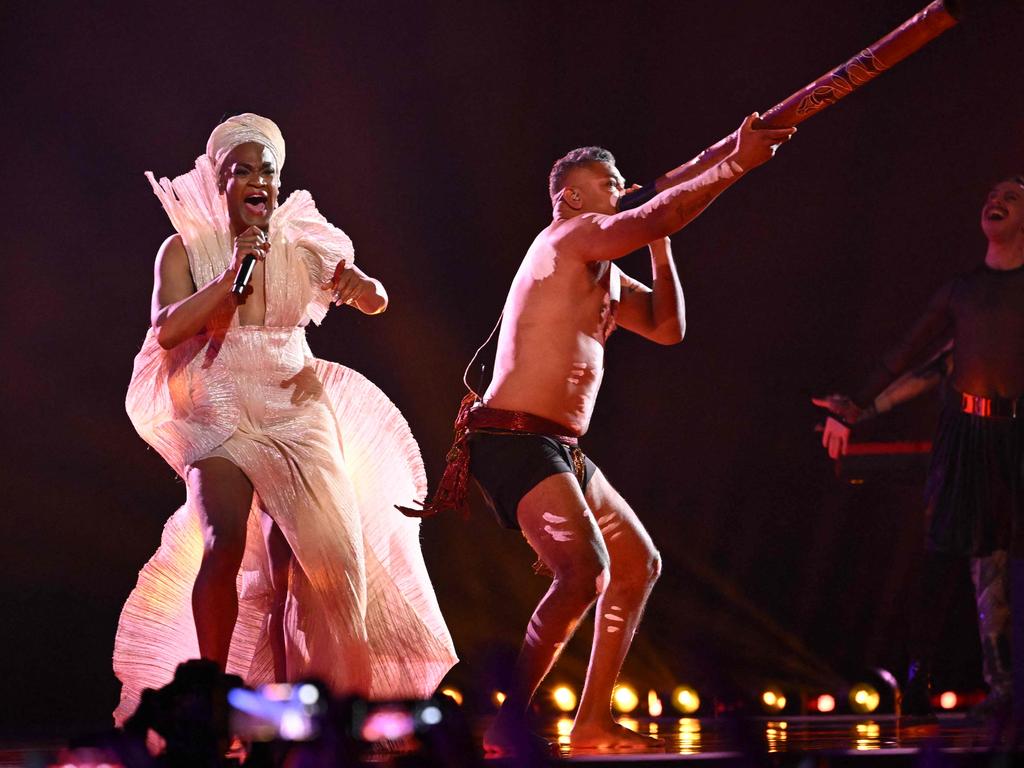
“We’re still buzzing from the three minutes, we did a killer performance and we felt like rock stars … and we can write about these things and create songs out of this,” Fielding said.
“And then we’ll get all the other losers to come and join in on the chorus.”
The pair said they wanted their Eurovision campaign, which took their sound to a global audience, to inspire Indigenous musicians and multicultural* Australians to take their unique voices and perspectives to future Eurovision contests.
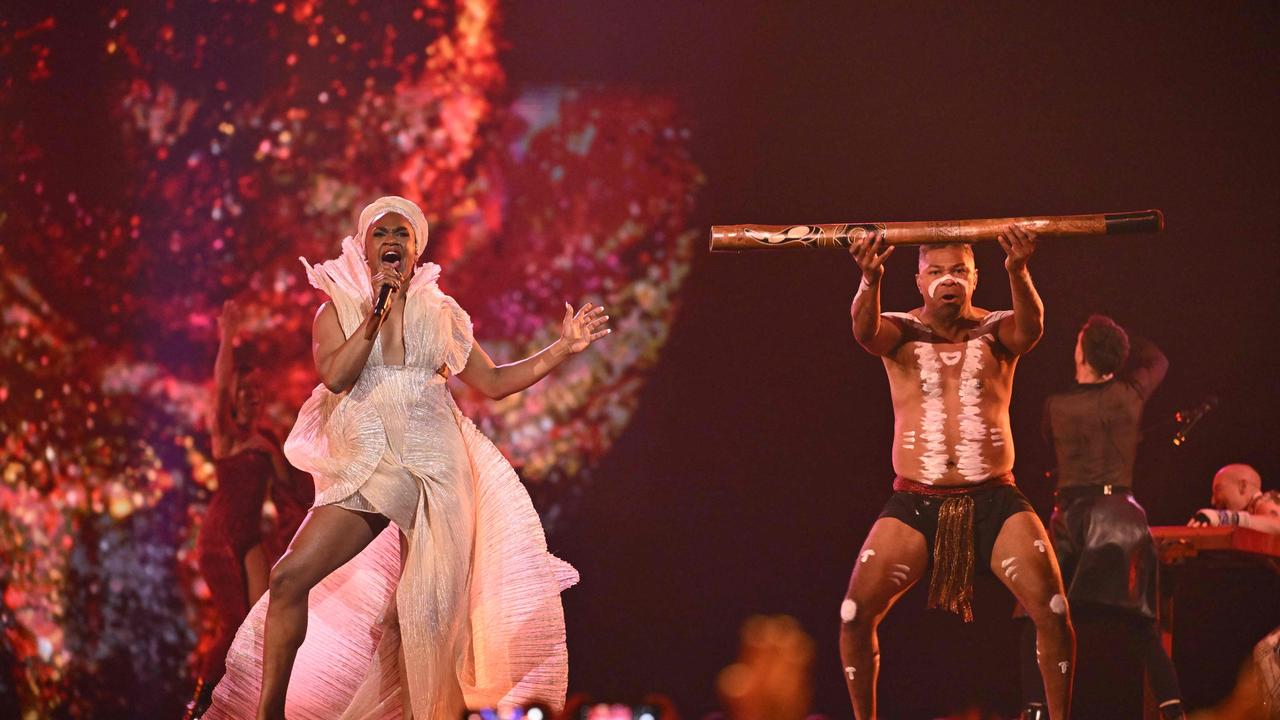
As well as a musician, Fielding is also an acclaimed* landscape artist who won last year’s prestigious* Wynne Prize* and found out on the morning of the semi-final in Malmo he had been short-listed for the Hadley’s Art Prize, worth $100,000, alongside his father Robert.
The other nine countries to make the cut from the first semi were Serbia, Croatia, Portugal, Slovenia, Finland, Lithuania, Ireland, Ukraine and Luxembourg.
Australia has been competing at the “singing Olympics” since Guy Sebastian first represented us in 2015 and since then we have only failed to qualify for the grand final once.
The semi-final cut is decided entirely by fan votes, with 150 million viewers from around the world expected to tune into the final show.
The 2024 Eurovision grand final broadcasts live from Malmö on Sunday 12 May at 5am AEST. The decider will also be available via streaming services and be replayed on Sunday night in a prime time slot.
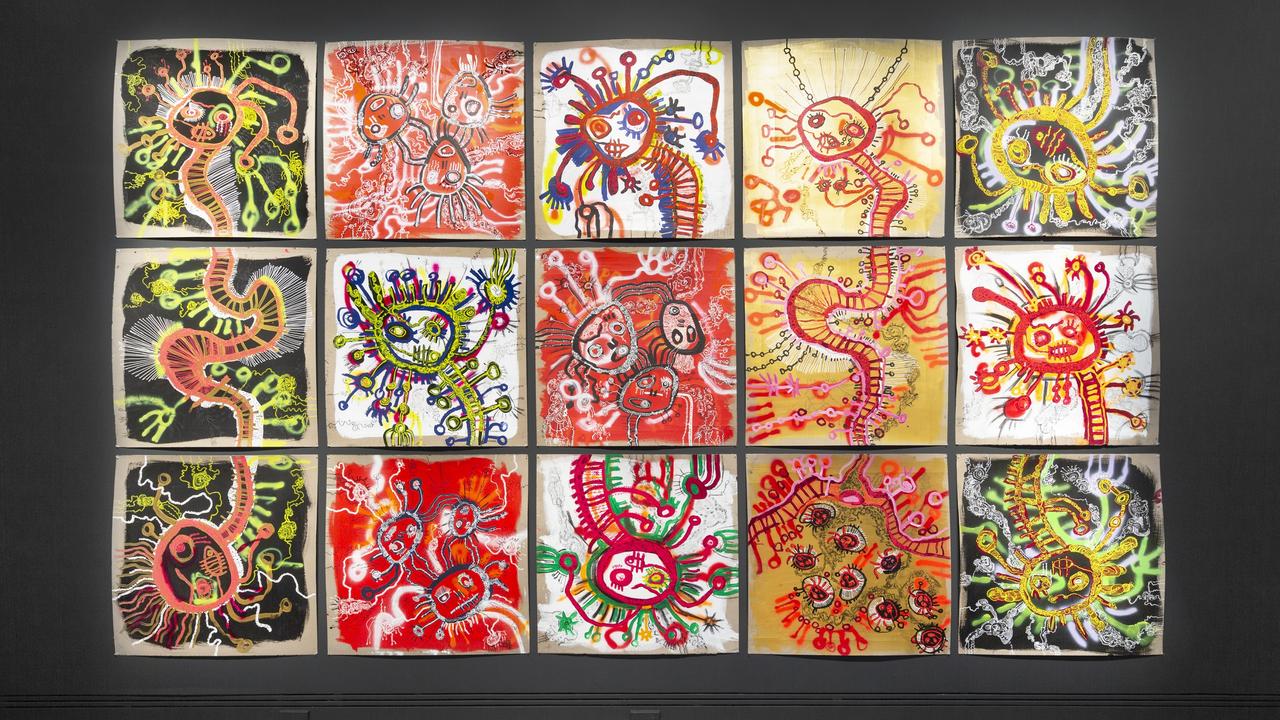
HOW DOES EUROVISION VOTING WORK?*
Well, it is called Eurovision because it is Europe’s biggest song contest. Its origins* show in the roster of countries that pre-qualified for the final.
Eligible viewers decide the results of the two semi-finals and can vote up to 20 times, either by phone, text message or via a Eurovision app
Only viewers in the 15 countries taking part in semi-final one are eligible to vote, along with three of the countries pre-qualified for the grand final: Germany, Sweden and the United Kingdom
Viewers in the 16 countries taking part in semi-final two are also eligible to vote along with three of the other countries pre-qualified for the grand final: France, Italy and Spain
In the final, audience votes make up half of the result, while juries of five music professionals in each participating country make up the other half
These juries rank songs based on composition* and originality, quality of the stage performance, the artists’ vocal capacity and their overall act
Non-participating countries around the world are able to vote in the final, and collectively have the weight of one additional voting country
New to this year’s Eurovision, viewers outside the participating countries can vote 24 hours prior each semi-final and the Grand final
* Source: Reuters
POLL
GLOSSARY
- contestant: someone who takes part in a game, contest or competition
- electrifying: when something is exciting, inspiring, delighting, exhilarating
- enhanced: improved, added to, strengthened, made better
- heritage: something handed down by someone’s ancestors or the past
- poll predictions: a forecast of results, opinion on expected outcomes
- literally: while it refers to the real or original meaning of a word or phrase, informally it is often used to emphasise that what you are saying is true, even if it seems exaggerated or surprising
- Anangu: Anangu means “people” in Pitjantjatjara and Yankunytjatjara, according to Parks Australia, and Yankunytjatjara. speakers live or originate in northwest South Australia and the Western Desert
- yidaki: Arnhem Land word for didgeridoo, the long wooden wind instrument played by the Aboriginal peoples
- diehard: unwaveringly loyal, cannot be moved to change from a fixed position or belief
- contingent: group of people at a meeting or event who have something in common
- multicultural: consisting of or relating to people of many different nationalities and cultures
- acclaimed: publicly acknowledged as excellent, has received public approval and praise
- prestigious: something of high standing that is greatly respected and admired as important
- Wynne Prize: established in 1897 and one of Australia’s longest-running art prizes, the Wynne is awarded annually for the best landscape painting of Australian scenery in oil or watercolours or for the best example of figure sculpture by Australian artists
- origins: beginnings, the way something started, relating to the birth of something or someone
- composition: another word for writing something, especially music, the act of composing
EXTRA READING
Australian Eurovision star shines
Aussie wins gold at art Olympics
QUICK QUIZ
- Which country is contestant Silia Kapsis representing at Eurovision?
- Why might Australians choose to vote for her in the final?
- How did the teen plan to celebrate her semi-final victory?
- Why was the performance of Australian entrants SA duo Electric Fields, considered historic?
- What is the other major part of Electric Fields vocalist Zaachariaha Fielding’s creative practice?
LISTEN TO THIS STORY
CLASSROOM ACTIVITIES
1. Write the lyrics
In the story, Australia’s Electric Fields joked that they would write a song about their Eurovision Song Contest experience called, You Got it Wrong.
Write the lyrics of this song for them. Don’t forget a great chorus for all of the other losers to join in!
Time: allow at least 25 minutes to complete this activity
Curriculum Links: English
2. Extension
Create an advertisement. The purpose of your ad is to encourage Australians to watch the final and vote for Silia. You must convince people that the Eurovision final is a show that should not be missed and include all of the qualities in the story that highlight why Silia would make a great winner. You can design a storyboard for an online or television commercial, a script for a podcast or radio, or a poster.
Time: allow at least 30 minutes to complete this activity
Curriculum Links: English, Science
VCOP ACTIVITY
Stretch your sentence
Find a “who” in the cartoon – a person or an animal. Write it down.
Add three adjectives to describe them better.
Now add a verb to your list. What are they doing?
Add an adverb about how they are doing the action.
Using all the words listed, create one descriptive sentence.


